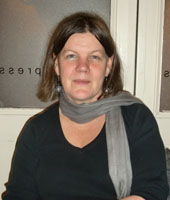
Dr Georgios T. Halkias is a specialist on Tibetan forms and practices of Buddhism in Tibet, Central Asia and the NW Himalayas. He completed his MA (Comparative Philosophy) at the University of Hawai‘i and his DPhil (Oriental Studies) at the University of Oxford. He is currently an Assistant Professor of Tibetan Buddhism at the Centre of Buddhist Studies, the University of Hong Kong.
He has held several research posts at the Warburg Institute, at Ruhr-Universität Bochum, and has been a British Academy Post-doctoral Fellow at SOAS, University of London. He has several publications including a substantial monograph on the history and development of Pure Land Buddhism in Tibet, Luminous Bliss: a Religious History of Pure Land Literature in Tibet. With an Annotated Translation and Critical Analysis of the Orgyen-ling golden Small Sukhāvatīvyūha-sūtra (Hawaii: University of Hawai‘i Press 2012); “The Muslim Queens of the Himalayas: Princess Exchange in Ladakh and Baltistan,” in Islam and Tibet: Interactions Along the Musk Routes, ed. by Anna Akasoy, et al. (Aldershot: Ashgate, 2010), pp. 231-252; 2008. “Buddhist Meditation Traditions in Tibet: The Union of the Three Vehicles,” in Buddhist Meditation: An Introduction, by Sharah Shaw. (New York: Rutledge Press, 2008) pp. 159-186; and “Tibetan Buddhism Registered: Imperial Archives from the Palace-Temple of ’Phang-thang.” (The Eastern Buddhist, Vol. XXXVI, Nos. 1 and 2, 2004). pp. 46-105.
He is currently researching the translation history of Buddhism in Tibet with Prof. Roberta Raine http://translationintibet.wordpress.com/.
Articles
Tibetan Buddhism Registered
The Muslim Queens of the Himalayas
From: “The Muslim Queens of the Himalayas: Princess Exchange in Ladakh and Baltistan.” In Islam-Tibet: Interactions along the Musk Routes, eds. Anna Akasoy et al. Ashgate Publications, 2011: 231-252.
Georgios’ new book is Luminous Bliss: A Religious History of Pure Land Literature in Tibet. For more details please click here.


